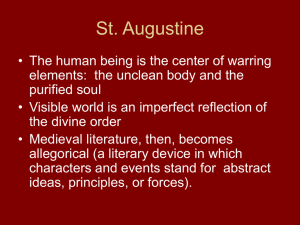


The description of the feast which follows immediately afterwards continues this concern with appearance, mentioning that "no fairer ladies e'er had drawn the breath of life" than those in attendance at Arthur's court, calling Arthur himself "the comeliest king," and in general noting that "all this goodly folk were e'en in their first youth" (53-55). These lines follow the narrator's mentioning a number of historical figures and leaders, and the fact that the narrator chooses to highlight Arthur's appearance above all else demonstrates that at least for Arthur and the society of his reign, appearance is the foremost concern (although admittedly, bravery or "boldness" does come a close second). The first location where one may find Arthur's singular focus on appearances comes even before the story proper, when the narrator informs the reader that "of all the kings who e'er o'er Britain lords have been, / Fairest was Arthur all, and boldest, so men tell" (26-27). By examining certain sequences in which clothing and the act of dressing are described in detail, it becomes clear that the Green Knight serves to instruct Gawain against the dangers of relying on appearance and performance, a lesson that Gawain takes away in the form of his shameful green girdle (the point of which Arthur's court entirely misses by fetishizing it into a mark of pride.) The arrival of the Green Knight may be read as an effort to intentionally disrupt this reliance on appearance and performance as a means of demonstrating its foolhardy nature. The chivalric code of Arthur's court relies nearly entirely on appearance, and the narration includes extended sequences describing the act of dressing and clothing itself. Gawain's journey from King Arthur's court, across England, and finally to the Green Chapel serves to demonstrate and comment upon the chivalric code professed and practiced in King Arthur's court, because it sees Gawain enacting the kinds of deeds the narrator lauds at the beginning of the poem and that the Green Knight mocks Arthur's court for failing to live up to.

The poem "Sir Gawain and the Green Knight" tells the story of Sir Gawain as he journeys to meet his supposed death at the hands of the titular Green Knight, having promised to appear a year and a day following their first meeting.


 0 kommentar(er)
0 kommentar(er)
